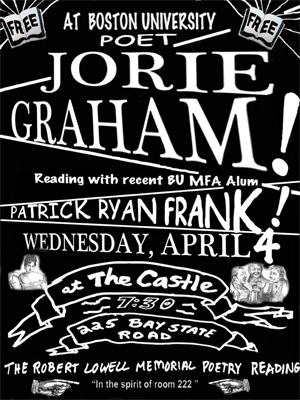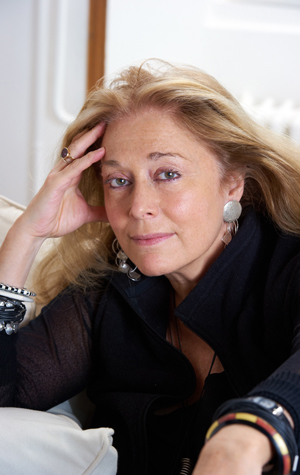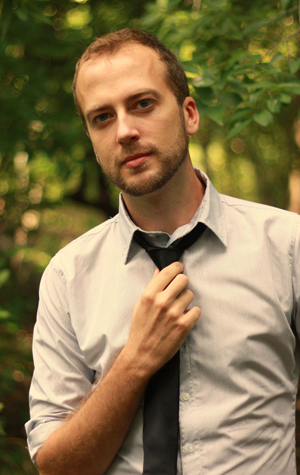A Touch of the Poet(s) Tonight
Pulitzer winner Jorie Graham at Lowell Poetry Reading

Poet Jorie Graham’s conversion came by way of a chance occurrence in college. Graham grew up in Italy (her father was Newsweek’s Rome bureau chief) and as a teenager had worked on the set of the Michelangelo Antonioni film Zabriskie Point. She entered New York University in the late 1960s intending to become a filmmaker. But one day, walking past a classroom, she heard a professor reciting lines from T. S. Eliot’s The Love Song of J. Alfred Prufrock. Standing in the hall, Graham was mesmerized by the lines: “I have heard the mermaids singing, each to each./I do not think they will sing to me.” From that moment, she was hooked.
Today, Graham is one of the nation’s most celebrated poets, the author of a dozen collections of poetry (her latest, Place, is being published later this month). She won a Pulitzer Prize in Poetry for The Dream of the Unified Field: Selected Poems 1974–1994. Other honors include a genius grant from the John D. and Catherine T. MacArthur Foundation. The former director of the Writers’ Workshop at the University of Iowa, Graham is currently the Boylston Professor of Rhetoric and Oratory at Harvard, the first woman to hold that position.
Noted for poems that explore politics, religion, and other issues facing contemporary society, Graham, by her own admission, is something of a perfectionist. She once said that “people would be appalled” at how many drafts of a poem she writes, revising up to 30 times.

Her new collection focuses largely on themes of desire and memory and has earned early praise. Reviewing Place (HarperCollins/Ecco) for National Public Radio, Craig Morgan Teicher said that “these winding, harrowing poems” move subtly, “but there’s a lot going on there if you can bring down your heart rate to the poems’ trance-like pace.”
Fans will have a chance to hear Graham read some of those poems at the Robert Lowell Memorial Poetry Reading tonight at 7:30 p.m. at the Castle, followed by a book signing.
The semiannual event honors American poet Robert Lowell, who famously taught Anne Sexton, Sylvia Plath, and a number of other notable poets at BU in the 1950s.
“Jorie Graham is a fearless innovator and a leading influence in her generation,” says Robert Pinsky, a College of Arts & Sciences professor of English and three-time U.S. poet laureate. “She has always been willing to take on the largest subjects, including social concerns such as the destruction of the natural world.”
Also reading tonight will be Patrick Ryan Frank (GRS’04), who plans to read from his first collection of poetry, How the Losers Love What’s Lost (Four Way, 2012). “I might sneak a few new poems in there,” Frank says, the way a TV show “ends with highlights from the next episode.”
Frank is often drawn to the subject of loss. “Everyone understands disappointment, the way it can crash down upon you or settle slowly, like snow,” he says. “It’s universal.” And he sympathizes with the losers he writes about. “My losers tend to be interesting, even beautiful, specifically because of what they’ve suffered. Many of them are fuller beings for it.”
“Patrick Ryan Frank is a young poet who has mastered his art by exploring his own acute sense of possibility,” says Pinsky. “His poems are entertaining and urgent in his own original, distinctive way.”

For his part, Frank describes his poems as “little feeling machines” and “odd contraptions that are short and tightly built, clear, immediate, and emotionally direct.” He describes the characters in his collection as “moment-haunted”—defined by something they did or failed to do. “They fixate on it, and the past is not past for them,” he says. “Other people move happily along, but my characters walk around slowly, hand-in-hand with their missed chances and disasters.”
The poet admits to being obsessed with trivia and sometimes finds inspiration in his voracious reading of Wikipedia. “I read something at some point about Argentinean President Juan Peron’s hands being held for ransom,” Frank says. “Years later, I started thinking about those hands, and soon enough, I wrote a poem about them. The poem is in my first collection, and I have Wikipedia to thank for it.”
Each of his poems begins with “the vaguest of ideas,” he says. “I think I want to write a poem about Sherlock Holmes’ archenemy and I do whatever research might seem useful. Eventually, a line will come to me, usually when I’m walking to the grocery store. It’s almost always the last line of the poem. As I think about that line, more lines will suggest themselves. Since I already have a last line, it becomes a matter of writing to it, of earning it.”
Like Graham, Frank cops to being a perfectionist and says he is constantly revising his work, a pattern that leads to frequent distractions. “I’m not very good at forcing myself to write, so this can be a slow process. I try to bribe myself with a lot of cookies. Eventually, if all goes well, I’ll have a finished poem and I’ll be two pounds heavier.”
Reflecting back on his years at BU, Frank says the Creative Writing Program was a fantastic experience. He reserves special praise for Pinsky and Rosanna Warren, BU’s Emma Ann MacLachlan Metcalf Professor of the Humanities, “brilliant teachers” who “guided my gleefully argumentative cohort through some great poetry and important realizations.” He is especially grateful that BU gave him the opportunity to teach undergraduates. “Some of my students were older than I was and even more cynical, and they were very promising writers,” he notes. “It was incredibly difficult and incredibly fun—and it continues to shape my work and my relationships with other writers.”
Among his influences, Frank cites W. H. Auden, Dylan Thomas, and David Ferry, who was a guest lecturer at BU when Frank was a student here. But he’s equally influenced by photographs (“Weegee and Dorothea Lange are pretty obvious influences”) and by movies, especially those directed by Billy Wilder (Sunset Boulevard, Some Like It Hot, The Apartment).
In fact, Frank says, he’s at work on poems about movies, television shows, and commercials, especially “how they color our emotional landscapes. I’m interested in the idea that we learn how to feel from what we see on the screen: dramas and romantic comedies aren’t based on our lives, anymore. Our lives are based on them. That’s the thesis I’m working from, anyway. We’ll see what poetry comes of it.”
The Robert Lowell Memorial Poetry Reading, featuring Jorie Graham and Patrick Ryan Frank, is tonight, April 4, at 7:30 p.m. at the Castle, 225 Bay State Road. The event is free and open to the public.
The Robert Lowell Memorial Poetry Reading Series is funded by Nancy Livingston (COM’69) and her husband, Fred M. Levin, through the Shenson Foundation, in memory of Ben and A. Jess Shenson.
Watch a video of Jorie Graham reading from her poem “Studies in Secrecy” at the 2006 Geraldine R. Dodge Poetry Festival.

Comments & Discussion
Boston University moderates comments to facilitate an informed, substantive, civil conversation. Abusive, profane, self-promotional, misleading, incoherent or off-topic comments will be rejected. Moderators are staffed during regular business hours (EST) and can only accept comments written in English. Statistics or facts must include a citation or a link to the citation.